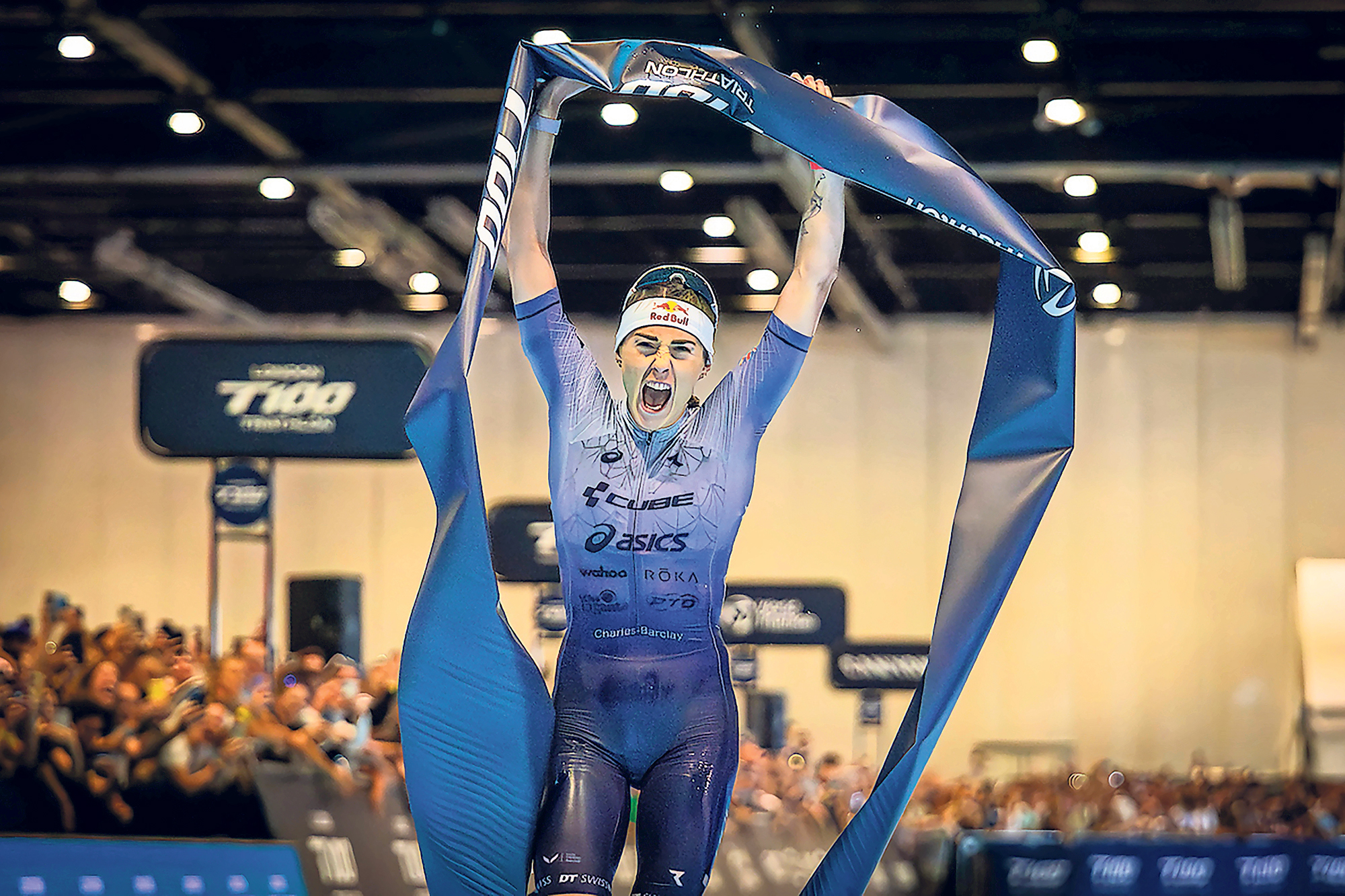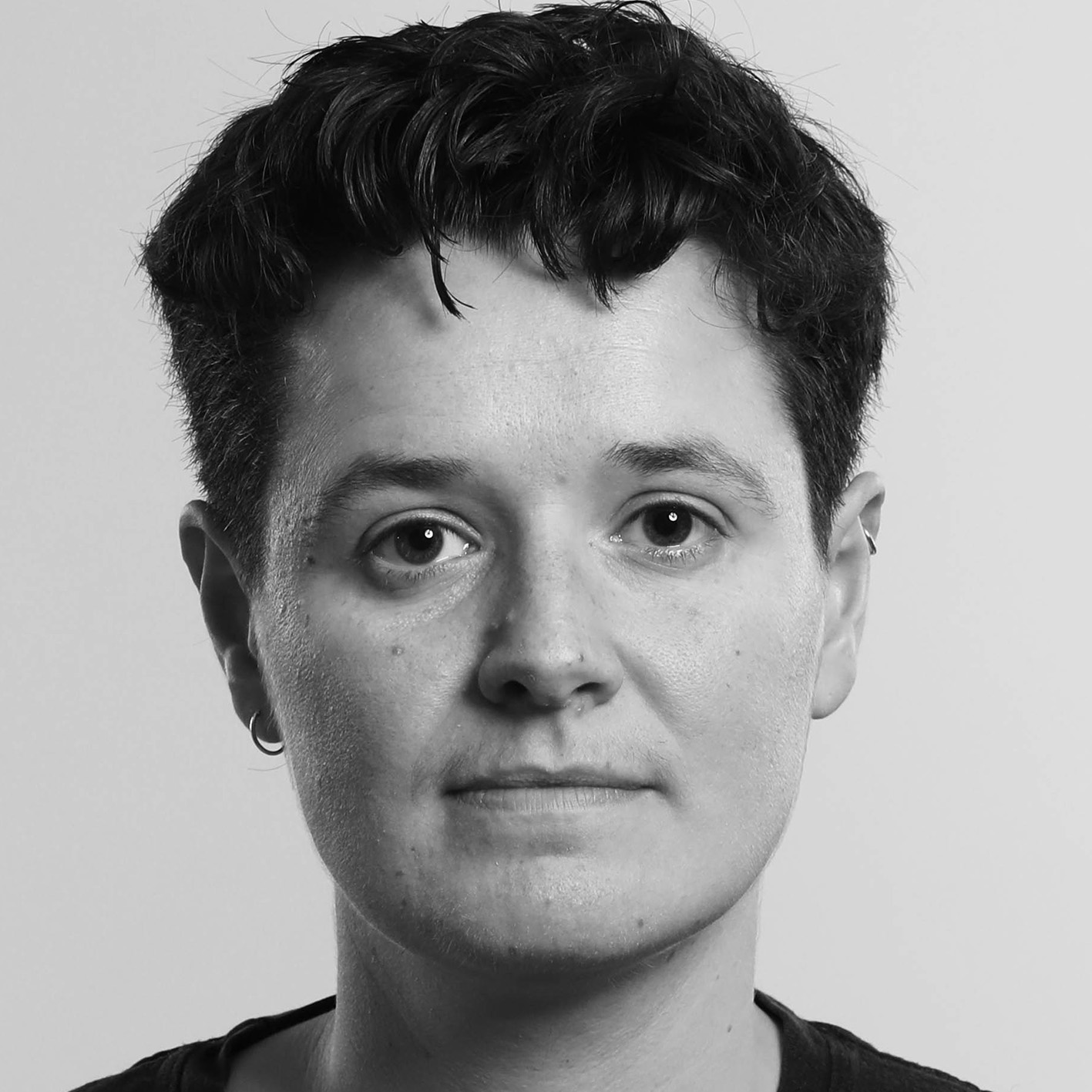Lucy Charles-Barclay had already swum 2.4 miles and completed a 112-mile cycle when she tore her calf in the first mile of the marathon portion of the 2023 Ironman World Championship. Unfortunately she still had 25.2 miles of running to complete.
Ahead of the rest of the field, and aiming to bring an end to a run of four second-placed finishes at the Ironman World Championships, Charles-Barclay slogged it out. Her finish time of eight hours 24min 31sec was a women’s course record.
“Although I did win, I was in agony the whole time,” said Charles-Barclay, who is from Hoddesdon in Hertfordshire. The Red Bull athlete spoke ahead of a return to the island of Kona, Hawaii for this year’s race this coming Saturday. The World Championship race is the highest achievement within Ironman, which is the extreme version of the Olympic triathlon format.
“It would be nice to have a race this time round where, whatever happens, I’m not in that much pain. I mean we are meant to be in pain doing it, but not that kind of pain.”
The injury meant that what should have been a breakthrough moment for Charles-Barclay suddenly became an enforced time away from the sport.
“When I was running that marathon I said to myself: ‘If this is the end of your career, but you’re going to win, then you’ve done it. It might be the end of your career but you’ve won.’”
However, with the time off came a revelation that Charles-Barclay had not been expecting. Last year, she was diagnosed with coeliac disease, a condition where your immune system attacks your body when you consume gluten. Suddenly she realised why she had been struggling so much with illness and injury.
“I was basically poisoning myself before any big event by carb loading with pizza and pasta,” she said.
“One of the biggest positives was realising how much I had achieved not knowing that I had this underlying condition. I managed to win the world title not knowing I was coeliac. All of that gave me a really positive shift in my mindset because I knew if I could get it under control, then I should feel a lot better.
“When I was diagnosed, the doctor said, ‘It’s easy, you just have to be gluten free!’ But when you start to travel and learn about cross-contamination and that when things might have been put in oils that contain gluten, you can’t eat them, it can be really difficult. Now I travel with my own rice cooker!”
Newsletters
Choose the newsletters you want to receive
View more
For information about how The Observer protects your data, read our Privacy Policy
I found triathlon so much more sociable and fun than the sport I was previously doing
I found triathlon so much more sociable and fun than the sport I was previously doing
Charles-Barclay believes it has taken a year to adjust properly and recover from the damage she had done by consuming gluten before she knew she had coeliac disease. Her results are paying dividends from getting fit, with a homecoming win at the London T100 triathlon in July followed by another T100 win in Spain two weeks ago. It puts her at the top of the T100 leaderboard, the professional triathlon tour, ahead of her attempt to reclaim her Ironman crown in Kona on Saturday, having missed the 2024 World Championship.
“I’ve been pretty quiet. People haven’t really seen me racing much and probably weren’t looking at me as a potential winner,” she said. “I think the T100 race in London changed their minds a little bit, even though it is not even half the distance of Kona.
“In my own head, there is less pressure than ever before. I was so desperate to get that win, having been second four times, whereas this time I know I’ve won it. That is a weight off my shoulders. Now it’s about ‘Can I deliver a better performance?’ Who knows what the outcome will be but I believe I’m in even better shape.”
Charles-Barclay, 32, is rare as a triathlete in coming from a swimming background. She regularly leaves the water first, but it is far more common for triathletes to specialise in the running or cycling aspects of the race. Charles-Barclay, meanwhile, only pivoted to the sport after failing to qualify for the 2012 Olympics in open water swimming.
“In swimming, I always got satisfaction from the training and the racing I did,” she said.
“The first Ironman I ever finished, I was just an amateur and I think I came second in my age group. The feeling that I had crossing that line, the sense of achievement – I hadn’t felt anything like that in my entire swimming career. That was when I knew that this sport is pretty special.
“When I was a swimmer, we had a little bit of social time even though swimming is probably one of the least social sports. But when I came into triathlon I realised I could go out on a bike ride and actually talk to people. Sometimes it doesn’t even feel like you’ve had a training session. You were just having this lovely social time out on the bikes.
“I found triathlon so much more sociable and fun than the sport I was previously doing and I think that’s why so many people love doing it. I’ve always felt this huge amount of respect between all athletes in triathlon. Whether you are a professional at the top of your game or an amateur balancing family life and work, everyone has respect for each other, because you know what it takes just to get to the start line.”
Charles-Barclay believes more people should give the sport a go, particularly women. About a third of triathlon entrants are women but that proportion drops the longer the distance gets.
“It’s an incredible sport. If you are wanting to do it, I say just go for it. Even if you don’t think you can do it, drag your friends in and make them do it with you! I don’t think there is any better feeling than crossing the line of any triathlon. If you can get to Ironman distance, I can promise you it is the best feeling in the world.”
Photograph by T100 Triathlon via Getty Images



